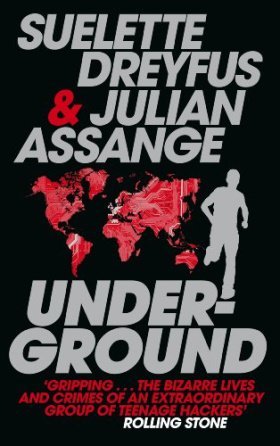`Hiya, Mendax. How's tricks?'
`Good. Did you see that RMIT email? The one in Geoff Huston's mailbox?' Mendax walked over to open a window as he spoke. It was spring, 1991, and the weather was unseasonably warm.
`I did. Pretty amazing. RMIT looks like it will finally be getting rid of those line traces.'
`RMIT definitely wants out,' Mendax said emphatically.
`Yep. Looks like the people at RMIT are sick of Mr Day crawling all over their computers with line traces.'
`Yeah. That admin at RMIT was pretty good, standing up to AARNET and the AFP. I figure Geoff Huston must be giving him a hard time.'
`I bet.' Prime Suspect paused. `You reckon the Feds have dropped the line traces for real?'
`Looks like it. I mean if RMIT kicks them out, there isn't much the Feds can do without the uni's cooperation. The letter sounded like they just wanted to get on with securing their systems. Hang on. I've got it here.'
Mendax pulled up a letter on his computer and scrolled through it.
From aarnet-contacts-request@jatz.aarnet.edu.au Tue May 28 09:32:31 1991
Received: by jatz.aarnet.edu.au id AA07461
(5.65+/IDA-1.3.5 for pte900); Tue, 28 May 91 09:31:59 +1000
Received: from possum.ecg.rmit.OZ.AU by jatz.aarnet.edu.au with SMTP id AA07457
(5.65+/IDA-1.3.5 for /usr/lib/sendmail -oi -faarnet-contacts-request aarnet-contacts-recipients); Tue, 28 May 91 09:31:57 +1000
Received: by possum.ecg.rmit.OZ.AU for aarnet-contacts@aarnet.edu.au)
Date: Tue, 28 May 91 09:32:08 +1000
From: rcoay@possum.ecg.rmit.OZ.AU (Alan Young)
Message-Id: <9105272332.29621@possum.ecg.rmit.OZ.AU>
To: aarnet-contacts@aarnet.edu.au
Subject: Re: Hackers
Status: RO
While no one would disagree that `Hacking' is bad and should be stopped, or at least minimised there are several observations which I have made over the last six or eight months relating to the persuit of these people:
1. The cost involved was significant, we had a CSO working in conjunction with the Commonwealth Police for almost three months full time.
2. While not a criticism of our staff, people lost sight of the ball, the chase became the most important aspect of the whole exercise.
3. Catching Hackers (and charging them) is almost impossible, you have to virtually break into their premises and catch them logged on to an unauthorised machine.
4. If you do happen to catch and charge them, the cost of prosecution is high, and a successful outcome is by no ways assured. There may be some deterrent value in at least catching and prosecuting?
5. Continued pursuit of people involved requires doors to be left open, this unfortunately exposes other sites and has subjected us to some criticism.
The whole issue is very complex, and in some respects it is a case of diminishing returns. A fine balance has to be maintained between freedom, and the prevention of abuse, this appears to be the challenge.
Allan Young
RMIT
`Yeah, I mean, this RMIT guy is basically saying they are not going to catch us anyway, so why are they wasting all this time and money?'
`Yep. The Feds were in there for at least three months,' Prime Suspect said. `Sounded more like nine months though.'
`Hmm. Yeah, nothing we didn't know already though.'
`Pretty obvious, leaving those accounts open all the time like they did. I reckon that looked pretty suspicious, even if we hadn't gotten the email.'
`Definitely,' Mendax agreed. `Lots of other hackers in RMIT too. I wonder if they figured it out.'
`Hmm. They're gonna be screwed if they haven't been careful.'
`I don't think the Feds have gotten anyone though.'
`Yeah?' Prime Suspect asked.
`Well, if they had, why would they leave those accounts open? Why would RMIT keep a full-time staff person on?'
`Doesn't make sense.'

























